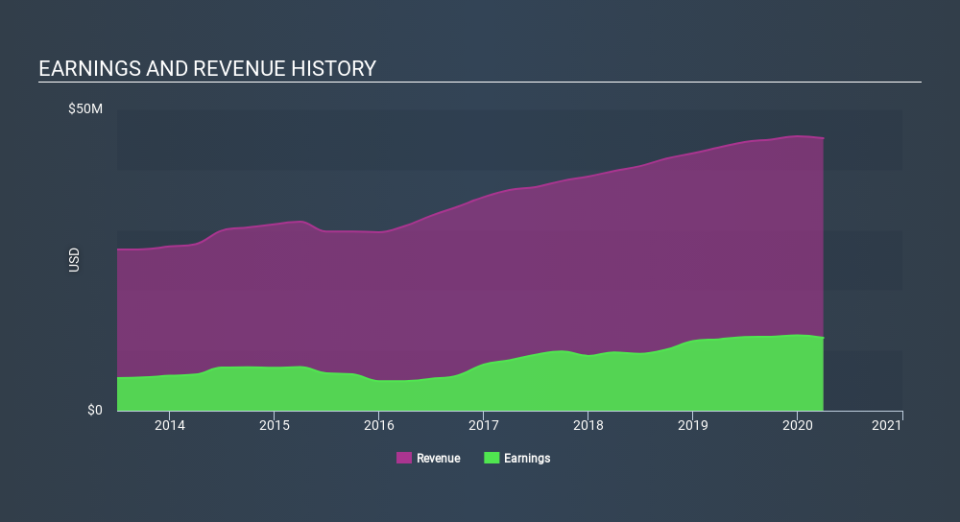Did You Manage To Avoid Oak Valley Bancorp's (NASDAQ:OVLY) 35% Share Price Drop?

Passive investing in an index fund is a good way to ensure your own returns roughly match the overall market. Active investors aim to buy stocks that vastly outperform the market - but in the process, they risk under-performance. For example, the Oak Valley Bancorp (NASDAQ:OVLY) share price is down 35% in the last year. That contrasts poorly with the market return of 3.7%. At least the damage isn't so bad if you look at the last three years, since the stock is down 12% in that time. Shareholders have had an even rougher run lately, with the share price down 32% in the last 90 days. But this could be related to the weak market, which is down 14% in the same period.
View our latest analysis for Oak Valley Bancorp
To quote Buffett, 'Ships will sail around the world but the Flat Earth Society will flourish. There will continue to be wide discrepancies between price and value in the marketplace...' One flawed but reasonable way to assess how sentiment around a company has changed is to compare the earnings per share (EPS) with the share price.
Even though the Oak Valley Bancorp share price is down over the year, its EPS actually improved. Of course, the situation might betray previous over-optimism about growth.
It seems quite likely that the market was expecting higher growth from the stock. But looking to other metrics might better explain the share price change.
Oak Valley Bancorp's revenue is actually up 3.5% over the last year. Since we can't easily explain the share price movement based on these metrics, it might be worth considering how market sentiment has changed towards the stock.
You can see how earnings and revenue have changed over time in the image below (click on the chart to see the exact values).
We like that insiders have been buying shares in the last twelve months. Even so, future earnings will be far more important to whether current shareholders make money. Before buying or selling a stock, we always recommend a close examination of historic growth trends, available here..
What about the Total Shareholder Return (TSR)?
Investors should note that there's a difference between Oak Valley Bancorp's total shareholder return (TSR) and its share price change, which we've covered above. The TSR is a return calculation that accounts for the value of cash dividends (assuming that any dividend received was reinvested) and the calculated value of any discounted capital raisings and spin-offs. Its history of dividend payouts mean that Oak Valley Bancorp's TSR, which was a 35% drop over the last year, was not as bad as the share price return.
A Different Perspective
While the broader market gained around 3.7% in the last year, Oak Valley Bancorp shareholders lost 35% (even including dividends) . However, keep in mind that even the best stocks will sometimes underperform the market over a twelve month period. On the bright side, long term shareholders have made money, with a gain of 7.6% per year over half a decade. If the fundamental data continues to indicate long term sustainable growth, the current sell-off could be an opportunity worth considering. It's always interesting to track share price performance over the longer term. But to understand Oak Valley Bancorp better, we need to consider many other factors. For instance, we've identified 2 warning signs for Oak Valley Bancorp that you should be aware of.
If you like to buy stocks alongside management, then you might just love this free list of companies. (Hint: insiders have been buying them).
Please note, the market returns quoted in this article reflect the market weighted average returns of stocks that currently trade on US exchanges.
Love or hate this article? Concerned about the content? Get in touch with us directly. Alternatively, email editorial-team@simplywallst.com.
This article by Simply Wall St is general in nature. It does not constitute a recommendation to buy or sell any stock, and does not take account of your objectives, or your financial situation. We aim to bring you long-term focused analysis driven by fundamental data. Note that our analysis may not factor in the latest price-sensitive company announcements or qualitative material. Simply Wall St has no position in any stocks mentioned. Thank you for reading.

 Yahoo Sports
Yahoo Sports 
